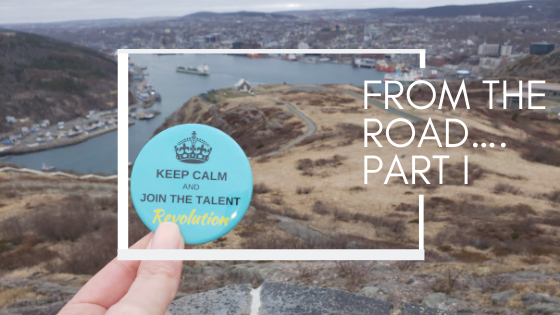By Lisa Taylor
It’s been an amazing and busy month since my latest book launched.
The Talent Revolution: Longevity and the Future of Work is a book almost 16 years in the making. Early recognition of some of the key symptoms of the revolution piqued my interest in 2003, while I was still a corporate manager. By 2009, I was into research-mode, launching a new business and experimenting with career and talent models to address the intergenerational workforce. In 2016, my co-author, Fern Lebo, and publisher, UTP, joined me in exploring the Talent Revolution.
Together, we wrote a book that decodes exactly what is happening in today’s world of work.
Of course, getting the book into people’s hands and onto shelves is only the beginning. I am excited that between now and December, I’ll have a chance to visit with communities across Canada and in Europe to talk about the world of work and explore the impact the book is having. I’ll share a few key insights along the way—and welcome opportunities to speak in your community or company, if you aren’t already on the list of cities I’ll be visiting.
My first stop on the book tour was at Wilfrid Laurier University.
Laurier has an impressive and innovative approach to experiential learning and career development. Laurier has many innovative programs that challenge assumptions about education and the roles various stakeholders might play. From their Brantford campus to their community engagement option, it was clear that Laurier is working with its students and stakeholders to shape a new future for education and career success.
Next, I went east, in fact, as far east as you can go and still be in North America.

In St. John’s, Newfoundland, I was welcomed into the Military Family Leadership Circle led by Gail Wideman. Like older workers, Veterans have decades of service and a strong identity tied to the work that they had been doing in the past. Understanding the nuances of various hidden talent pools, including Veterans and older workers, is critical to Canada’s competitiveness now and in the future.
While in St. John’s I also spent time with Jennifer Browne, (Interim) Director of Student Life at Memorial University. In the beautiful campus career centre, I shared the key findings from the book with community partners and employers. It was election day in the province, and we had candid and detailed discussions about employment, work and policy. I came away from this leg of my tour with a deep curiosity about and interest in Newfoundland.
There are long-standing narratives going back many generations about work on the Rock and, at the same time, when you talk one-on-one with people, there is a real hunger to learn how to take some of the innovative and new ideas that are bubbling beneath the surface and unearth a new story. We spoke a lot about how communities and individuals can be actors in how the world of work continues to change as opposed to recipients of conditions and circumstances that are not of their choosing. I can’t wait to return to see how their story continues to unfold.
In the coming weeks, I’ll be visiting Montreal, Halifax, and Norway, where I’ll work alongside leaders from 34 countries. I’ll continue to share some images and learnings and welcome your feedback. What do you want to learn from these places as I visit? What questions can I ask on your behalf? And, as you’ll see below, when I meet with the representatives of countries from around the world, what do you want them to know about Canada, your company and our approaches to the future of work?
Thanks for being with me on this ride!


